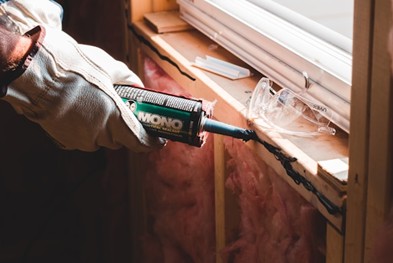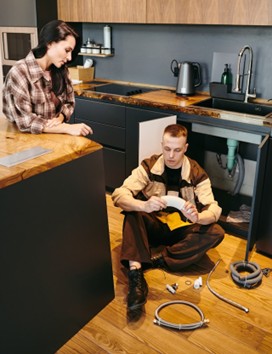
Owning a home is a major milestone and a significant responsibility. While it can be a source of pride and comfort, it also comes with an ongoing need for home repairs and maintenance. Unfortunately, many homeowners make mistakes when maintaining their property that can lead to unnecessary costs, safety issues, or long-term damage. Recognizing common mistakes and knowing how to avoid them is essential for preserving your home's value and ensuring it stays in excellent condition.
Many homeowners only think about their roof when there’s an obvious leak or damage. However, ignoring regular roof inspections can result in severe problems over time, such as water damage, mold growth, and compromised structural integrity. Repairs can also be costly, and the thought of investing in inspections might feel unnecessary if there are no visible problems, notes Central Florida Property Management Solutions.
However, the roof is one of the most important components of your home and neglecting it can lead to expensive repairs down the road. It’s important to schedule an annual roof inspection with a professional. This can help catch small issues before they become large, expensive problems. After severe weather, it’s important to inspect your roof for signs of damage. A minor issue like a loose shingle can turn into a serious problem if left unaddressed.
Failing to properly maintain your HVAC system is a common mistake that can lead to inefficient heating and cooling, higher utility bills, and even the need for costly repairs or replacements. Homeowners often overlook HVAC maintenance because they don't realize how critical it is for the longevity and efficiency of the system. It's easy to assume that as long as your heater or air conditioner is working, there's no need to maintain it.
Consider simple tasks, such as changing the air filters every 1-3 months, depending on the type of filter and whether you have pets or allergies. Hire a professional to ensure the system is functioning properly and to address any potential issues before they become major problems. Cleaning your ducts, checking for leaks, and servicing your system regularly will not only extend the life of your HVAC but also keep your home comfortable and energy efficient.
Many homeowners fail to clean their gutters regularly or ignore the importance of maintaining them. Clogged gutters can cause water damage, mold growth, and even damage to the foundation of your home. Gutter cleaning is a dirty, physically demanding job, so it’s essential to hire a professional to clean the gutters. Maintaining the gutters at least twice a year (spring and fall) is essential, or more often if your property has many trees. Clogged gutters can lead to water overflow, which can damage the roof, walls, or foundation.
Homeowners often attempt to tackle repairs themselves to save money, but DIY projects can sometimes lead to mistakes that end up costing more than hiring a professional from the start. Issues such as electrical problems, plumbing leaks, or structural damage require specialized knowledge that many homeowners lack.
The rise of YouTube tutorials and DIY blogs has made it seem easy to take on home repairs. Many individuals are eager to save money and think that handling minor repairs themselves is the most cost-effective option.
While some minor tasks, like painting or fixing a leaky faucet, may be manageable for the average homeowner, it’s important to recognize when a job is beyond your skill set. If you’re unsure about the complexity of the task, it’s always a good idea to hire a professional. Attempting to fix electrical or plumbing issues without the proper training can not only be dangerous but can lead to costly mistakes.
Small gaps and cracks around windows, doors, and in the walls are often ignored, but they can lead to air leaks and increased energy costs. These gaps can also let moisture in, potentially causing mold or pest problems. Over times, these air gaps can add up, especially in older homes.
Regularly check for cracks around windows, doors, and baseboards. Apply caulk or weather stripping around gaps to prevent drafts and moisture from entering. Sealing these small openings can help improve your home’s energy efficiency, lower heating and cooling costs, and prevent potential water damage or pest infestations.

Poor drainage can lead to water pooling near the foundation, which can result in serious issues like basement flooding, mold growth, and foundation cracks. Drainage problems are often invisible until there is a major issue, such as basement flooding.
Ensure that the ground around your home slopes away from the foundation. If necessary, regrade the soil or install downspouts that direct water away from the house. If you have a basement, consider installing a sump pump to help prevent flooding. This simple measure can protect the structural integrity of your home and prevent expensive water damage.
Many homeowners fail to adequately prepare for extreme weather conditions, such as heavy rain, snow, or hurricanes. This can lead to damage caused by high winds, flooding, and falling debris. People often don’t think about extreme weather until it happens. Procrastination or a sense of complacency can cause homeowners to delay preparations until it’s too late.
Prepare your home for extreme weather by reinforcing windows and doors, securing outdoor furniture, and inspecting your roof and gutters. Make sure your landscaping doesn’t have dead trees or branches that could fall during a storm. You should also check that your sump pump is working and consider installing flood barriers in flood-prone areas of your home.
Outdated or overloaded electrical systems can be a significant safety hazard. Older homes may need an electrical update to handle modern appliances and devices, increasing the risk of fire or electrical malfunctions. If you live in an older home or have experienced frequent electrical issues, it’s important to have a professional assess your system. They can update wiring, add outlets to prevent overloading circuits, and ensure your home’s electrical system meets current safety codes.
Homeownership is an ongoing expense, and it can be easy to focus on monthly bills while neglecting to plan for repairs and maintenance costs. Set aside a portion of your monthly budget for potential repairs. Experts recommend saving about 1-2% of your home’s value annually for upkeep. Having an emergency fund will help you stay prepared for unforeseen home issues.
Owning a home comes with its share of responsibilities, and the mistakes homeowners make can often lead to costly repairs and safety risks. By avoiding common pitfalls such as neglecting maintenance, overlooking small repairs, and failing to budget for necessary upkeep, you can keep your home in excellent condition and protect your investment. Regular inspections, preventive measures, and smart budgeting are all key to ensuring that your home remains a safe, comfortable, and valuable place for years to come. By taking proactive steps and staying on top of maintenance, you can avoid costly mistakes and enjoy the full benefits of homeownership.